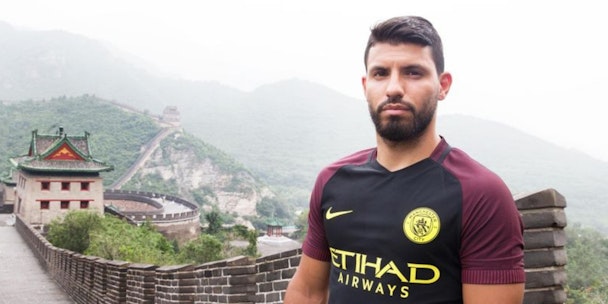Why Manchester City's move into eSports in China is more than just football politics
Walk down the streets of Delhi or Kuala Lumpur, and you’ll notice a strange phenomenon: Manchester United Football Club is omnipresent. Much less the world’s most popular football club, United can claim to be the world’s most-supported sports team — by a country mile.

Rivalries stretch far beyond the limits of Greater Manchester / MEN
An independent Kantar study in 2016 suggested that as many as 10% of the world’s population — some 659 million people — support the Red Devils, 108 million of whom hail from China alone.
A cynic might suggest that Manchester City’s recent move into Chinese eSports was more than just savvy marketing. It is what a military tactician might call ‘soft power’. Rivalries stretch far beyond the limits of Greater Manchester.
Last year, City became the first Premier League club to launch a Fifa Online team in China, buying up sought-after players to compete in the Online Star League (FSL), with the aim of expanding their audience in the region.
Football politics aside, it’s a savvy brand-building move. The professional gaming industry may have been born in South Korea, but in no time, China, with its $32.5 billion gaming market, has easily eclipsed its southerly neighbour — and the United States. Asia now makes up half of the global gaming market, with China’s huge population accounting for a large slice of that pie, according to Newzoo, an eSports research agency.
The stigma against dedicating so many hours to gaming is a thing of the past in China. So much so, that, while Donald Trump can’t find $5bn to build his wall, the government in Hangzhou is investing half that amount to construct a four million square foot ‘eSports town’ — including an eSports academy, an eSports-themed hotel, and even a hospital specializing in treating players — to cement itself as the eSports capital of the world.
Though a burgeoning middle class with disposable income is emerging, China is still by far the world’s biggest and toughest market to break, whatever your business. And while the shackles of China’s closed economy are being broken by globalist Premier Xi Jinping’s hunger for international trade, it is by no means straightforward for brands to make their mark. Local customs and reams of red tape, plus the infamous Great Firewall of China, can be near-insurmountable. But in eSports, there exists a sort of backdoor for Western brands. Event sponsorship, plus product placement and the sponsorship of professional teams are perhaps the easiest routes to China’s 250 million-strong eSports audience.
When one considers that eSports are global by nature, the picture becomes clearer. Consider how many Chinese Man City fans will ever go to the Etihad, for example. Remarkably few, though it matters not. The Man City brand is there. Much in the same way that Chinese fans watching the English Premier League is privy to adverts and sponsorship from Western brands, nearly all eSports tournaments are streamed globally. If a brand is part of a major tournament anywhere in the world, Chinese fans will see it.
Likewise, the many local and national tournaments occurring on the mainland need prizes — usually money, cars, peripheral products, and smaller handouts. The desire for genuine Western goods is huge, presenting abundant opportunities for brands to have their products seen by a Chinese audience as an object of desire.
While both local and international tournaments are streamed, it is a less simple route to sponsor the streaming platforms themselves. Twitch — hugely popular in the West and much of Asia — was virtually unused in China, until it was, and the government banned it to favor homegrown platforms Douyu, YY, and Huya. Each boasts tens of millions of users, and each can be sponsored if you know how.
In this context, the Man City approach is especially interesting. It looks to build mass ‘followership’ rather than add diehard fans, something eSports lends itself well to owing to its strength in building mass engagement and encouraging interaction. It’s also based on an understanding that China has a very different digital landscape to any other market in the world owed to the unique way that Chinese consumers use digital platforms and share content. It’s the perfect combination of sharp brand objectives and local understanding.
Brands looking to break China through eSports need to be equally fastidious. Local knowledge and trusted partners with boots on the ground are a must. While great leaps have been made to lessen hostility to Western firms, it is by no means a cinch. An FMCG brand, for example, will undoubtedly experience greater challenges when it comes to nuanced messaging and creative executions than a football club. There are rules to be followed, customs to abide by, and vastly different business culture to the West.
It may seem like low hanging fruit but remember — not everyone has the financial clout of Manchester City.
Peter Reid is chief executive of MSQ Partners
